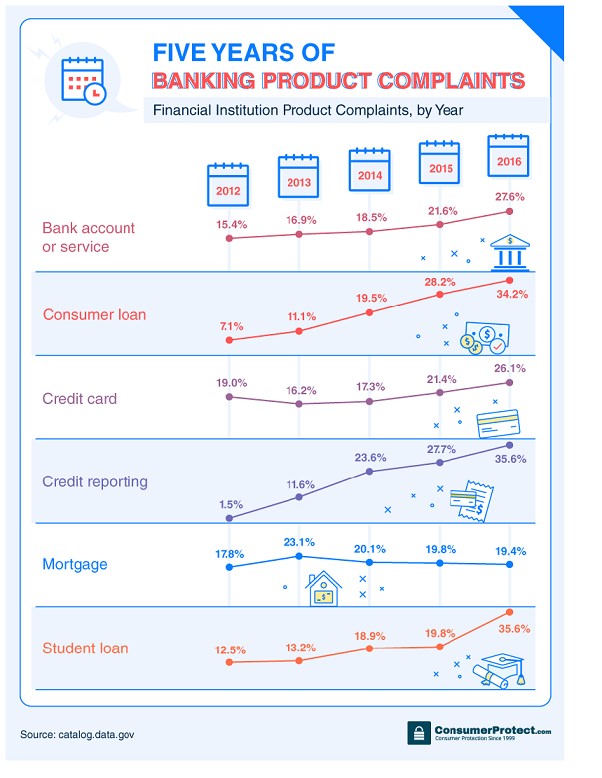It's an open secret that many people are not particularly fond of banks, with 25% of Americans considering them as being outright incompetent. But at least Americans have one up on the French, where a full 73 percent of the public takes a seriously dim view of financial institutions.
Customers are growing increasingly frustrated with banks.

(Click to enlarge)
Source: CNBC
If visiting your local bank tends to invoke memories of long queues, Kafkaesque bureaucracy and bad customer service, do not despair. You may soon be able to say bon débarras! (French for ‘good riddance’).
Technology will have its way.
Or at least according to Marcus Schenck, a senior executive at Deutsche Bank, who sees bank accounts becoming obsolete a short 15 years from now.
According to Schenck, a recent trip to China served as an eye-opener that made him realize that retail banking is ripe for all manner of disruption.
The ‘aha moment’ for Schenck came after visiting a Chinese company that manufactures microchips for bitcoin mining and just about any blockchain technology application.
Schenck has predicted that electronic and ‘humanless’ banking will soon become the norm, pretty much the way forex trading works. Related: Gold Investors Shouldn’t Expect A Replay Of 2008
But…spoiler alert--Schenck's line of thinking might sound novel and futuristic, but it's not exactly new.
‘Humanless’ banks have been long coming, when you consider that driverless cars and automated libraries have become almost banal.
In 2014, Citibank and the State Bank of India (SBI) set-up a couple of high-tech, fully automated and humanless banking galleries with no tellers in cages and zero withdrawal/deposit slips in Mumbai.
Nearly every transaction, including account opening, is performed with zero intervention by an actual human being. The humanless bank allows a customer to open an account in 15 minutes or less, much faster than your typical bank. SBI says the banks were designed to attract the notoriously finicky Generation Y and its unyielding need for instant gratification.
The system is a considerable upgrade from a bank's point of view because of its much lower operating costs--about a tenth of conventional banking.
A huge chunk of the costs of running a bank are administrative in nature. With machines handling everything, the bank is able dramatically reduce its staff and also remain open 24/7 with no additional hiring costs incurred.
Humanless banking also offers a more nuanced advantage to banks: It’s an unprecedented opportunity to use big data and analytics to better target customers and cross-sell them a slew of other services, usually through customers' mobile phones.
Other banks including JPMorgan Chase, Bank of America and Wells Fargo have taken cue and are rolling out similar initiatives.
Schenck's views also highlight another trend that's already underway--the creation of individual cryptocurrency wallets which does away with the need for banks. With the use of cryptocurrencies going increasingly mainstream, it's looking more likely that fiat currencies might one day be relegated to the ash heap of history, and take banks along with them.
By Tom Kool for Safehaven.com
More Top Reads From Safehaven.com:
















